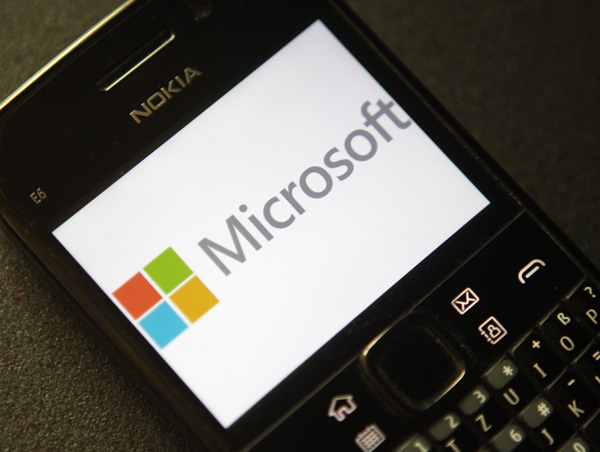Chinese antitrust agency looking into Microsoft
|
|
|
A photo illustration shows the Microsoft logo displayed on a Nokia phone in Vienna in this file photo taken September 3, 2013. [File photo] |
A Chinese antitrust regulator said on Tuesday it is investigating whether Microsoft's Windows operating system and Office business suite are a monopoly. The unexpected probe comes amid an investigation of chipmaker Qualcomm's monopoly status.
Analysts said the measures targeting the US tech giants underline China's concern over technological dependency on the United States.
The State Administration for Industry and Commerce said in a statement that Microsoft's two iconic products were reported by other companies for compatibility and file verification failures because Microsoft did not disclose enough product information. Microsoft is also facing tied-in sale investigations, the SAIC said.
Nearly 100 SAIC inspectors visited Microsoft's offices in Beijing, Shanghai, Guangzhou and Chengdu on Monday, taking internal documents and two computers.
Microsoft said on Monday it is willing to cooperate with the government on the investigation.
Charlie Dai, principal consulting analyst at Forrester Research, said the investigation of Windows and Office is set to harm Microsoft's business in China in the short run but it may be hard to impact the company's long-term earnings.
"Chinese users will find it difficult to let go of Microsoft's products radically because such a move will impact their business continuity," he said.
Government procurement of Windows 7 has remained vibrant over the past months, said Dai, adding Microsoft's attitude towards the probe will play a critical role in the verdict.
SAIC is one of three antitrust watchdogs in the country, along with the Ministry of Commerce and the National Development and Reform Commission.
Microsoft is the second US tech multinational being examined for monopoly. Qualcomm, a California-headquartered mobile chipmaker, is under investigation by the NDRC to determine whether it abused dominant market position to charge high patent fees.
Earlier this month, Chinese media criticized Apple's iPhones of secretly collecting user information. Analysts worry the incident may drag down sales of the next-generation iPhone in China, the largest smartphone market.
Other recent setbacks involving a US company include the banning of IBM's server in the banking sector; Microsoft's Windows 8 ouster from government procurement deals and Symantec's data-loss prevention software being kicked out of the public security system.
Kitty Fok, China head of technology research company International Data Corp, said the regulators should consider giving guidelines to the multinationals for them to run self-evaluations. "This could be a better option for the government instead of checking everything and announcing a punishment," she said.


